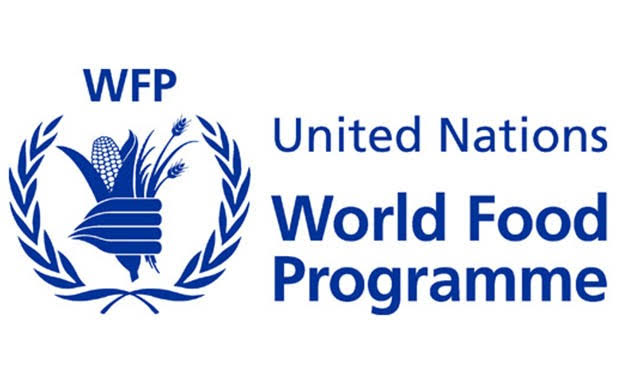The World Food Programme (WFP) has pledged to commit 2.5 billion dollars to strengthen and support Nigeria’s efforts towards sustainable food security and zero hunger across the country.
The WFP Country Director, Mr David Stevesson, disclosed this when he led the UN agency’s team to the Minister of Humanitarian Affairs and Poverty Alleviation, Dr Betta Edu, on Wednesday in Abuja.
“We talked about zero hunger, we talked about humanitarian hubs in every local government area in the country, we talked about the world food programme.
”The potential to support those hubs through buying food locally and assisting the needy with cash transfers and food.
“Let me announce here that the World Food Programme is committed to spending 2.5 billion dollars to fight hunger in the next five years in Nigeria,” he said.
Stevesson said that the agency had already captured 2.1 million beneficiaries under the programme with the hope of maintaining working relationship with the ministry to achieve the target.
He expressed the agency’s readiness to support the Federal Government’s determination to address humanitarian crises and poverty issues, especially as it related to food security.
”We are excited by President Bola Tinubu’s commitment and drive to eradicate poverty and reduce humanitarian crises in Nigeria.
”The new energy which the Minister is bringing into the space gives us hope that we will accomplish a lot together,” he said.
While congratulating the minister on her appointment, the WFP Country Director expressed optimism on the ability of the minister to deliver on the mandate.
In her response, the Minister of Humanitarian Affairs and Poverty Alleviation, Dr Betta Edu, said that the intervention would go a long way to address some of the humanitarian challenges affecting the country.
According to her, “Zero Hunger” is one of the projects the Ministry has initiated as part of poverty and humanitarian response efforts.
”We, therefore, appeal to the WFP to key into it by working with the Ministry to achieve results.
”Because, this intervention will go a long way to address some of the biggest challenges the country is facing” she said.
Edu told the WFP delegation that over 133 million people in Nigeria are affected by multidimensional poverty.
She said that the National Homegrown School Feeding was one aspect of the Zero Hunger Project.
”The Ministry will be working on different nutritional food programme that will target pregnant women, children under the age of five years and school pupils.
”Feeding persons who are affected by humanitarian crises, the aged including refugees that have found themselves within our space.
” Currently, we have over 80,000 persons living as refugees across Nigeria,” she said.
She said that the ministry had introduced an innovative way of rejigging the humanitarian response in the country.
“Part of the innovation we are bringing on board is what we call humanitarian hub.
”Because we want to create 774 of these humanitarian hubs in each local government across Nigeria,” the minister assured











Leave a Reply